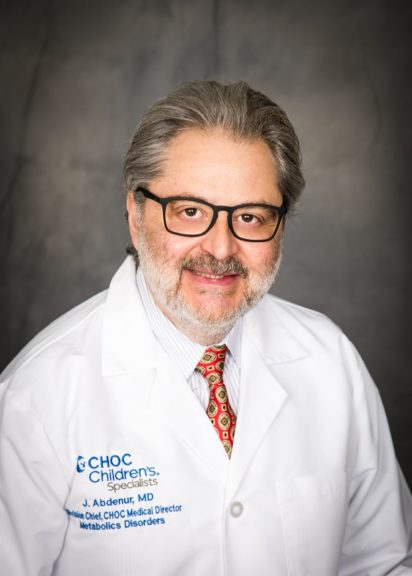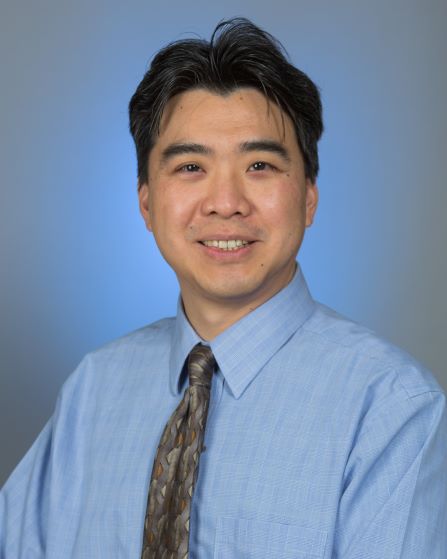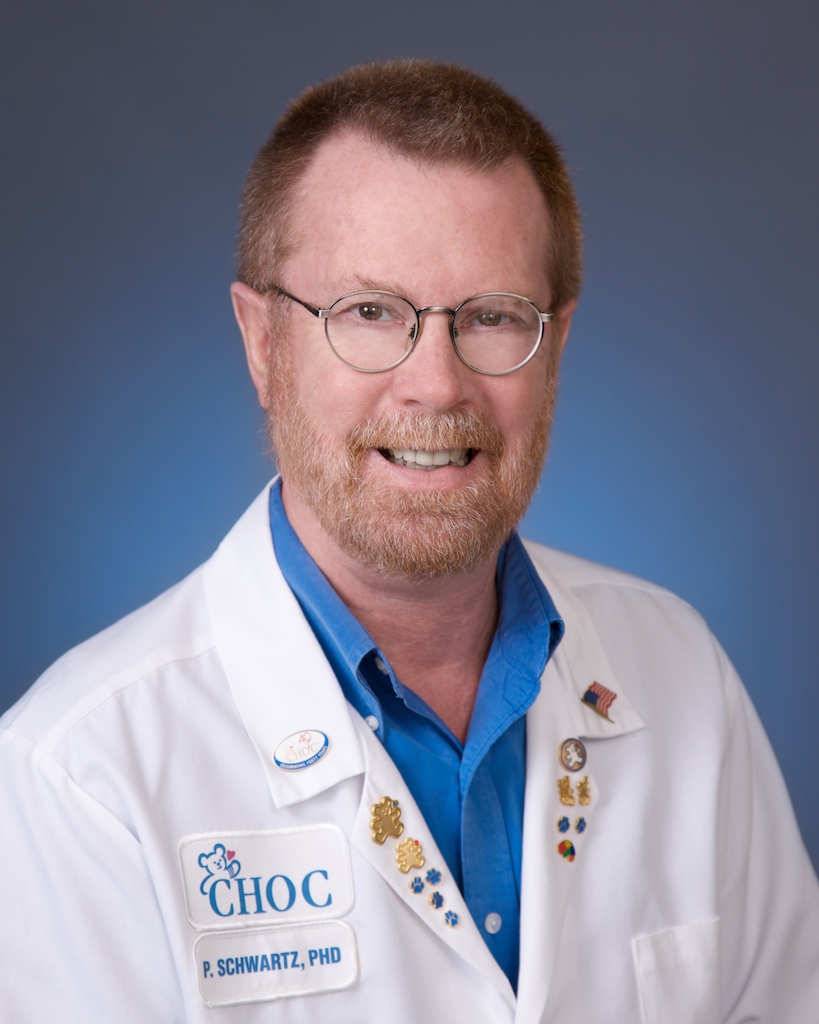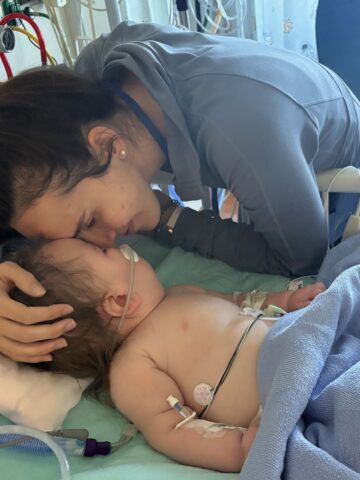CHOC’s growing distinction as a destination for patients with rare disorders recently got a prestigious boost.
In partnership with University of California, Irvine (UCI) Health, CHOC has been designated a Rare Disease Center of Excellence by the National Organization for Rare Disorders (NORD), joining a new and highly select group of 31 medical centers seeking to expand access and advance care and research for rare disease patients in the United States.
Dr. Jose Abdenur, chief of the division of metabolic disorders and director of the metabolic laboratory at CHOC — one of only a few such labs in the United States — will serve as the director of the NORD Center of Excellence partnership, announced Nov. 4 and expected to attract more resources and recognition to help CHOC and UCI find novel cures for rare disorders.
“Receiving this designation will increase our visibility, but more importantly, will increase access to many rare disease patients who may not know where to go,” said Dr. Abdenur, whose division is involved in more than 30 clinical trials. “Working together with UCI, we can improve clinical care and research for patients of all ages and backgrounds in Southern California, and collaborating with other NORD Centers of Excellence is a great opportunity to deliver transformational changes for the rare disease community.”

Dr. Abdenur will serve as a representative on the NORD Center of Excellence Advisory Committee.
“My goal is to highlight the importance of both CHOC and UCI,” Dr. Abdenur said. “I will try to make sure that we capitalize on our strengths and conduct more clinical trials as we move forward.”
As part of the NORD designation, Dr. Abdenur will collaborate with Dr. Virginia Kimonis, tenured professor in the Division of Genetic and Genomic Medicine in the Department of Pediatrics, with appointments in neurology, pathology and medicine at the UCI School of Medicine.
Sharing knowledge
The NORD Rare Disease Center of Excellence program aims to foster the sharing of knowledge between experts across the country, connect patients to appropriate specialists regardless of disease or geography, and improve the pace of progress in rare disease diagnosis, treatment, and research.
There are more than 7,000 rare diseases and between 25 million and 30 million Americans are estimated to be currently living with one. More than 90% of rare disorders lack an FDA-approved treatment. Most rare diseases are diagnosed in the pediatric population, but many remain unrecognized until adolescence or adulthood.
CHOC is one of the few pediatric hospitals in the country with a Metabolic Rare Disease Program (MRDP). The MRDP, led by Dr. Abdenur and Dr. Philip Schwartz, is conducting basic, translational and clinical research in a variety of disorders, including new gene therapy trials for lysosomal storage disorders, glycogen storage diseases, and phenylketonuria.
Dr. Raymond Wang, director of the Campbell Foundation of Caring Lysosomal Disease Program, has pioneered treatment for Batten disease and brought the first gene therapy trial for mucopolysaccharidosis type 1 to CHOC.

Dr. Wang’s basic research team focuses on defining biomarkers and the use of combined intra-articular / intravenous / intracranial gene therapy for MPS and the use of gene-editing technologies to permanently correct clinical manifestation of Pompe and other rare lysosomal diseases.
Dr. Abdenur and his team at the Laboratory for Energy Metabolism (E-Lab) has uncovered a novel mitochondrial disease, developed new dietary treatments for ultra-rare disorders, and is currently studying new drugs to increase energy production at the cellular level.
Dr. Schwartz’s laboratory, which specializes in producing organ-specific cell types that can be used to study tissue-specific pathologies and treatments, is currently researching new drugs in neurons and animal models with mitochondrial defects.

Altogether, the MRDP is staffed with three physician-scientists, five PhDs, several skilled laboratory and animal-care technicians and three clinical research coordinators. The MRDP collaborates with other specialties at CHOC and with other academic centers around the world.
With the support of the CHOC Research Institute, multiple other specialties at CHOC perform basic and translational research to provide new solutions for rare forms of blood disorders, hydrocephalus, epilepsy, brain tumors, ulcerative colitis, muscular dystrophies, neurodegenerative disorders, leukemias, cystic fibrosis, hormone deficiencies, and other diseases.
Going beyond
CHOC’s Research Institute is committed to “Go Beyond” the diagnosis of a rare disease to deliver new therapies that can transform patients’ and families’ lives. Thus, the institute conducts pivotal research across a wide span of specialties.
Through a centralized infrastructure of data support assistants, clinical research coordinators, regulatory specialists, research computational scientists, etc., the CHOC Center for Clinical Research supports over 500 clinical studies.
Rare disease studies span from metabolic disorders, which comprise about 80% of the rare diseases at CHOC, to hematology, neurology, genetics, oncology and neuro-oncology, cardiology, pulmonology, infectious disease, gastroenterology, critical care, and urology. A list of studies from clinicaltrials.gov shows that CHOC recently conducted or is conducting 78 pediatric rare disease studies across all subspecialties.
As the only Level-4 Epilepsy Center in Orange County, certified by the National Association of Epilepsy Centers, CHOC provides care for patients with the rarest epilepsies.
CHOC has served for many years as a consortium site for the National Institute of Health funding from UC Irvine and other academic institutions. In addition to prior NIH and California Institute for Regenerative Medicine prime awards, the rare disease researchers have more than 20 years of successful and continuous funding from foundations and philanthropic sources.
Through close coordination with the CHOC Foundation, CHOC rare disease investigators have secured large gifts and foundation grants, including an $8 million gift in 2020 from the Campbell Foundation of Caring to advance research for rare lysosomal storage diseases.
Seeking to host conferences
Dr. Abdenur noted that many family groups across the country regularly meet to share information and experiences about the rare diseases they are living with. He said he and Dr. Terence Sanger, CHOC’s chief scientific officer, are seeking grant support to host rare disease conferences.

“This will be a way to support families, share information and advance research in each rare disease field,” Dr. Abdenur said.
The NORD designation for CHOC and UCI will last for three years, after which the institutions will re-certify to meet the most up-to-date designation criteria.
“Right now, far too many rare diseases are without an established standard of care,” said Ed Neilan, chief scientific and medical officer of NORD. “The Centers for Excellence program will help set that standard – for patients, clinicians, and medical centers alike.”
For more information on the NORD Rare Disease Centers of Excellence program and the full list of centers, visit the program website.
Learn more about pediatric rare disease research at CHOC




